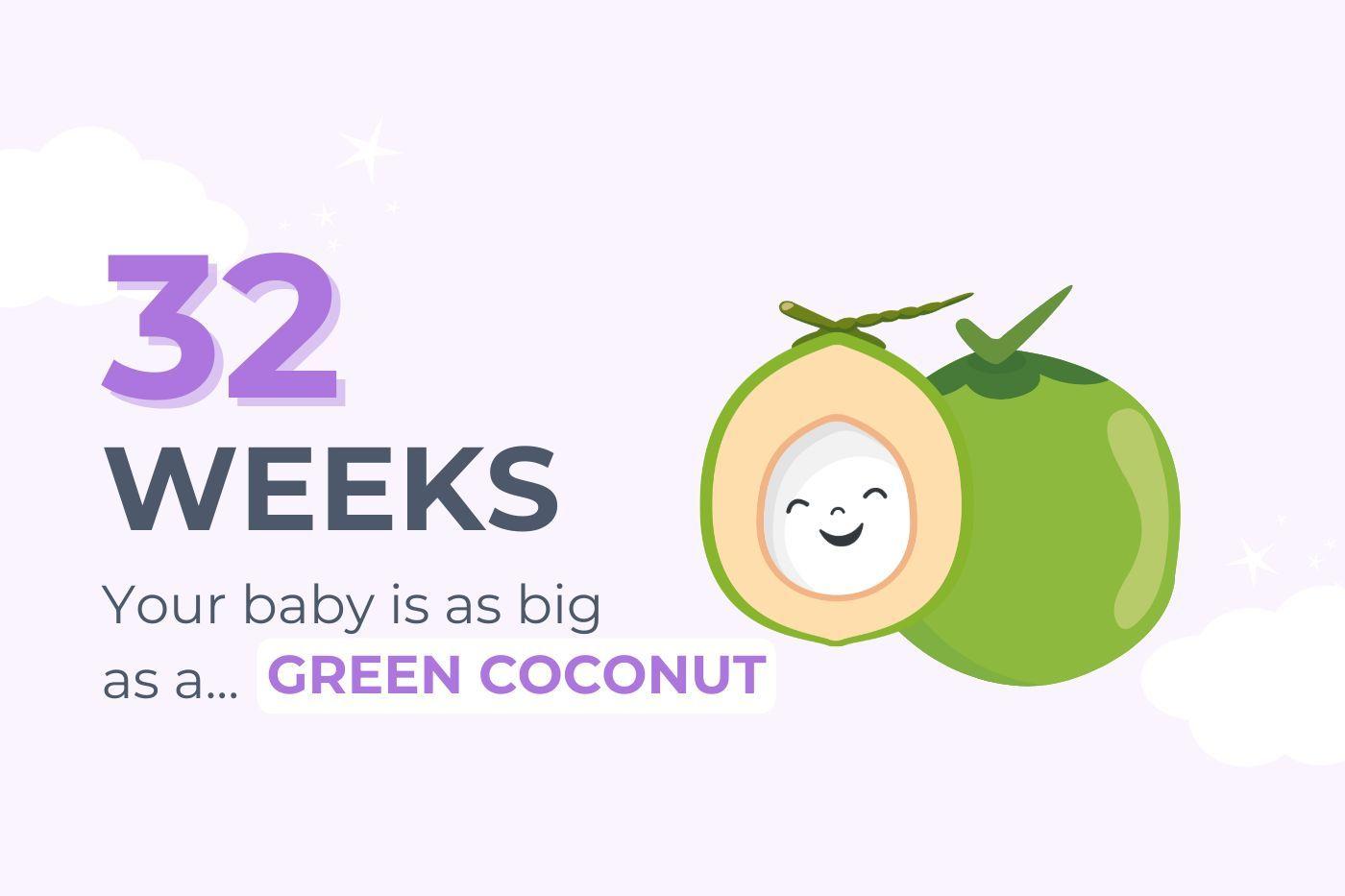PREGNANCY
32 Weeks Pregnant: Your Dreaming Baby
Your baby is not yet a chubby-cheeked cherub, but she's getting there!

Written by
Dr. Harvey Karp

SHARE THIS ARTICLE
PARENT PICKS
Bestsellers
PREGNANCY

Written by
Dr. Harvey Karp

SHARE THIS ARTICLE
Bestsellers
Your little one isn’t quite the chubby-cheeked bub you might be imagining yet, but they’re on their way. At this stage, your baby weighs nearly 1.8 kilograms (around 4 pounds) and measures about 45 centimetres long. They’re adding fat to their frame, and their once-wrinkly, reddish skin is beginning to smooth.
By now, your baby’s digestive system is almost ready. They’ve been practising swallowing by taking in little sips of amniotic fluid—which, funnily enough, is mostly their own wee! They haven’t yet done their first poo (that will happen around or shortly after birth). Their bones are still soft and flexible, and some babies already have a full head of hair, while others sport just peach fuzz. Fingernails are present, too. (If you’re expecting a boy, his testicles may have descended into the scrotum by now.)
Your baby’s movements may feel a little less dramatic—there’s simply less room to stretch! Plus, your bub is sleeping much of the time. Research shows that by this point, baby brain waves look similar to an adult’s during sleep. They’re also experiencing REM (Rapid Eye Movement) sleep—the stage when dreaming happens. Perhaps they’re already “dreaming” of the sound of your voice or the taste of garlic or basil from your dinner that’s drifted into their amniotic pool.
At 32 weeks, you’re around 8 months pregnant.
Feeling like a human pincushion? At your next antenatal appointment, you’ll likely have blood drawn for tests. Low iron or abnormal levels of haemoglobin, haematocrit, or platelets can increase risks during birth. When the placenta detaches after delivery, it leaves blood vessels open, and contractions help close them—so good clotting is essential.
By now, most women are on a prenatal vitamin plus an iron supplement. Taking them with vitamin C (like a glass of orange juice) helps your body absorb the iron. Iron keeps you and your baby well oxygenated and prevents anaemia—which can leave you tired and weak. (A heads-up: iron can make your poo dark green or black and sometimes cause constipation.)
You may also have another routine STI test. Untreated infections can affect delivery and your baby, but most can be treated safely. In many UK hospitals and Australian maternity wards, antibiotic eye ointment is still sometimes applied to babies after birth to prevent infection—though practices and policies vary, and parents can usually discuss their preferences with care providers.
Some common third-trimester symptoms include:
“Whether your pregnancy was meticulously planned, medically coaxed, or happened by surprise, one thing is certain – your life will never be the same.” — Catherine Jones
Disclaimer: The information on our site is NOT medical advice for any specific person or condition. It is only meant as general information. If you have any medical questions and concerns about your child or yourself, please contact your health provider. Breastmilk is the best source of nutrition for babies. It is important that, in preparation for and during breastfeeding, mothers eat a healthy, balanced diet. Combined breast- and bottle-feeding in the first weeks of life may reduce the supply of a mother's breastmilk and reversing the decision not to breastfeed is difficult. If you do decide to use infant formula, you should follow instructions carefully.